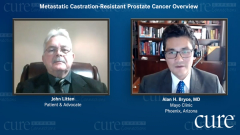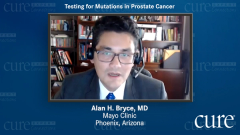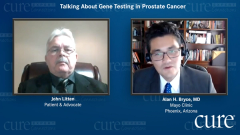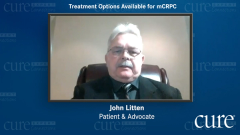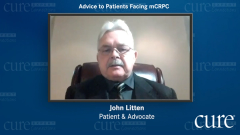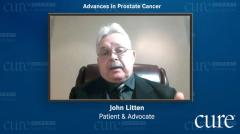
FDA-Approved PARP Inhibitors for Prostate Cancer
Episodes in this series

Transcript:
Nicholas J. Vogelzang, M.D., FASCO, FACP: These drugs, rucaparib and olaparib, are what we call PARP [poly ADP ribose polymerase] inhibitors. And they bind to cells that already have the missing gene, they’re missing the BRCA or they have a bad BRCA gene. When they do that, they create what’s called synthetic lethality. The DNA fragments and breaks up, and when cell damage occurs with DNA damage, it dies. Which is exactly what we want the cancer cell to do, die. And if we can get that to die, then the patient lives longer. These drugs have been approved for the treatment of ovarian cancer with a mutation of BRCA.
There’s been widespread use of these drugs in ovarian cancer. The drug may also be approved in breast cancer with the mutation, and recently both the TRITON study and the PROfound study allowed the FDA to approve these drugs in prostate cancer. Many physicians are now familiar with these drugs and their [adverse] effects. Both of these drugs can cause low blood counts. They can make you anemic, lower your white cell count, and they can lower your platelet count. They cause some liver abnormalities. They can also cause some minor kidney problems.
They could cause joint pain, diarrhea; there is a variety of [adverse] effects that each one of them give. You don’t want to give these drugs unless you’re absolutely certain that these will be beneficial. The benefit rate is high. It’s on the order of 40% to 50%. We don’t know why they don’t work in some people, but they don’t. And we also don’t know why they don’t last a long time. They last longer in ovarian cancer than they do in prostate cancer. But they are clearly beneficial in prostate cancer compared to the alternative treatments. When we have an appropriate patient with prostate cancer where the cancer has already spread, and it is outside of the prostate and they’ve already had a hormone treatment, these drugs are highly appropriate and are recommended by the guidelines to give.
Transcript Edited for Clarity







